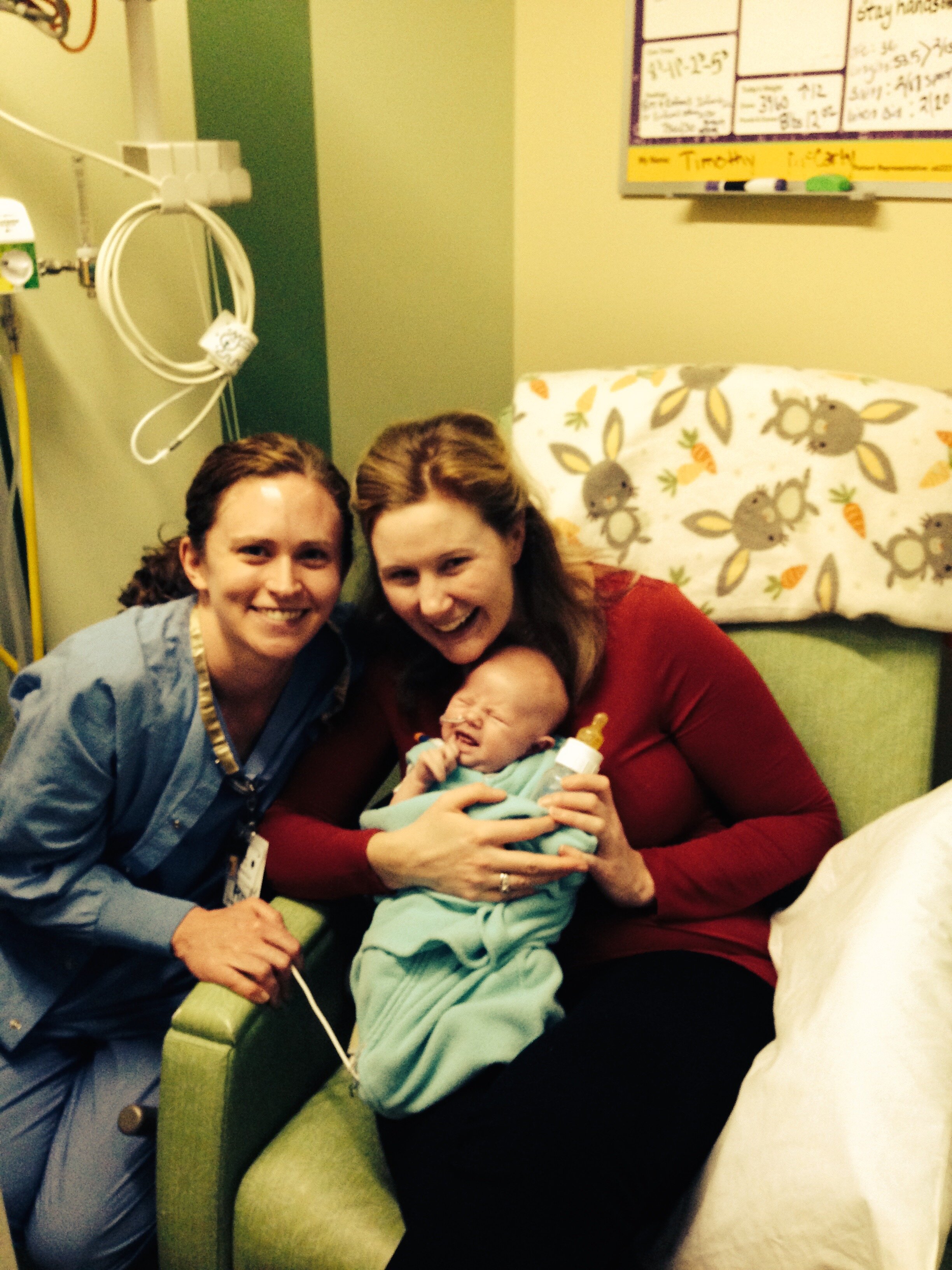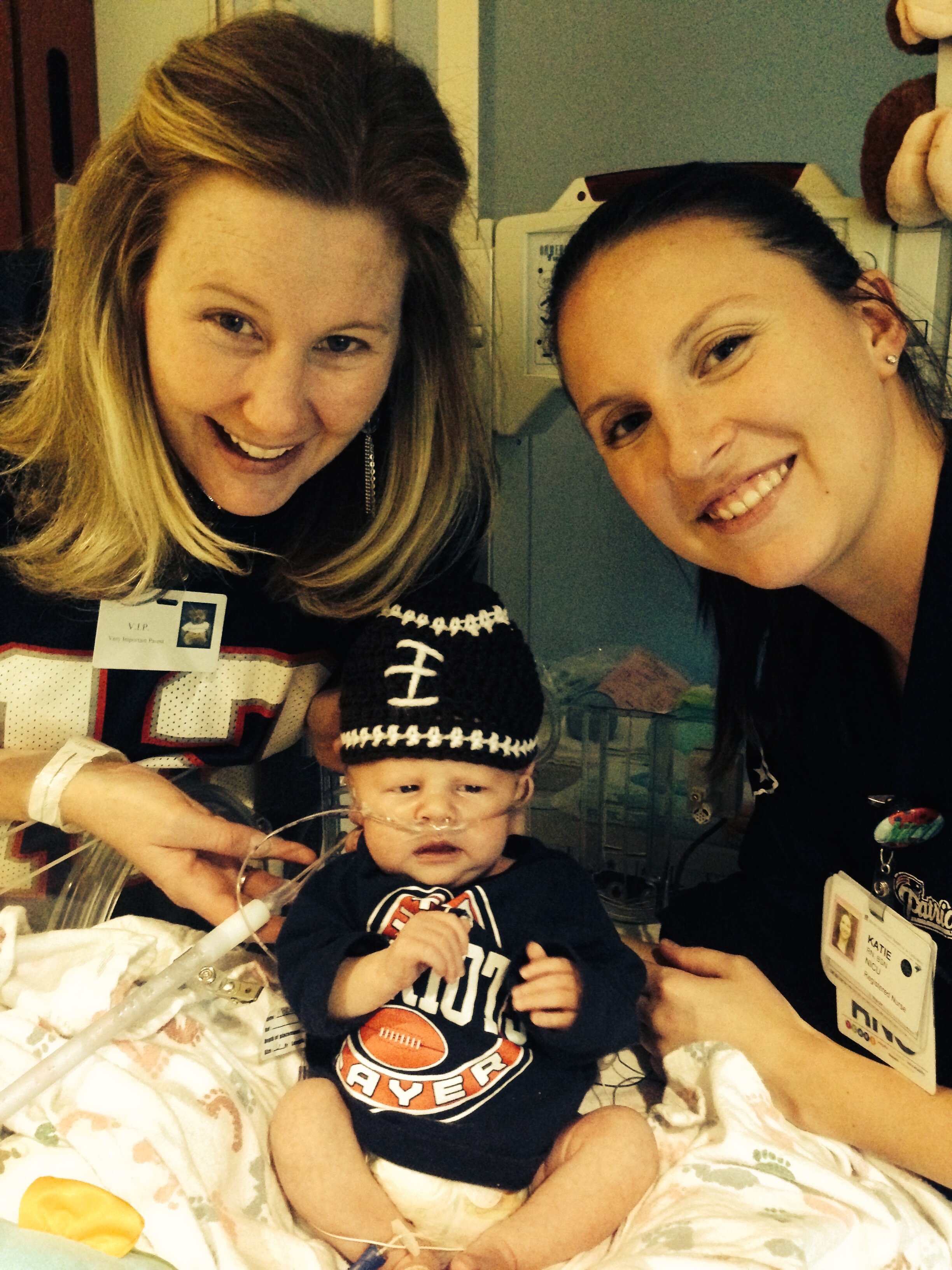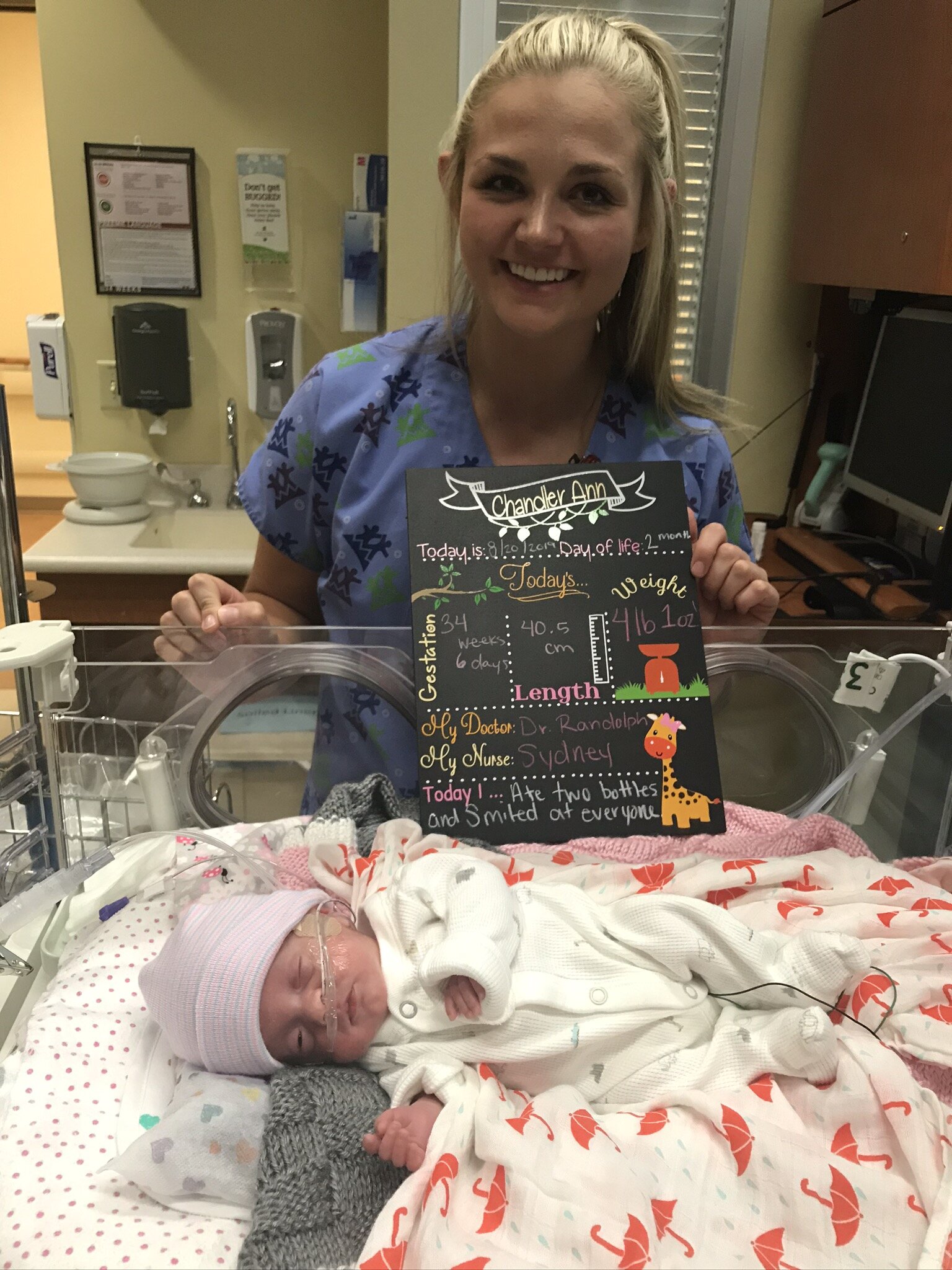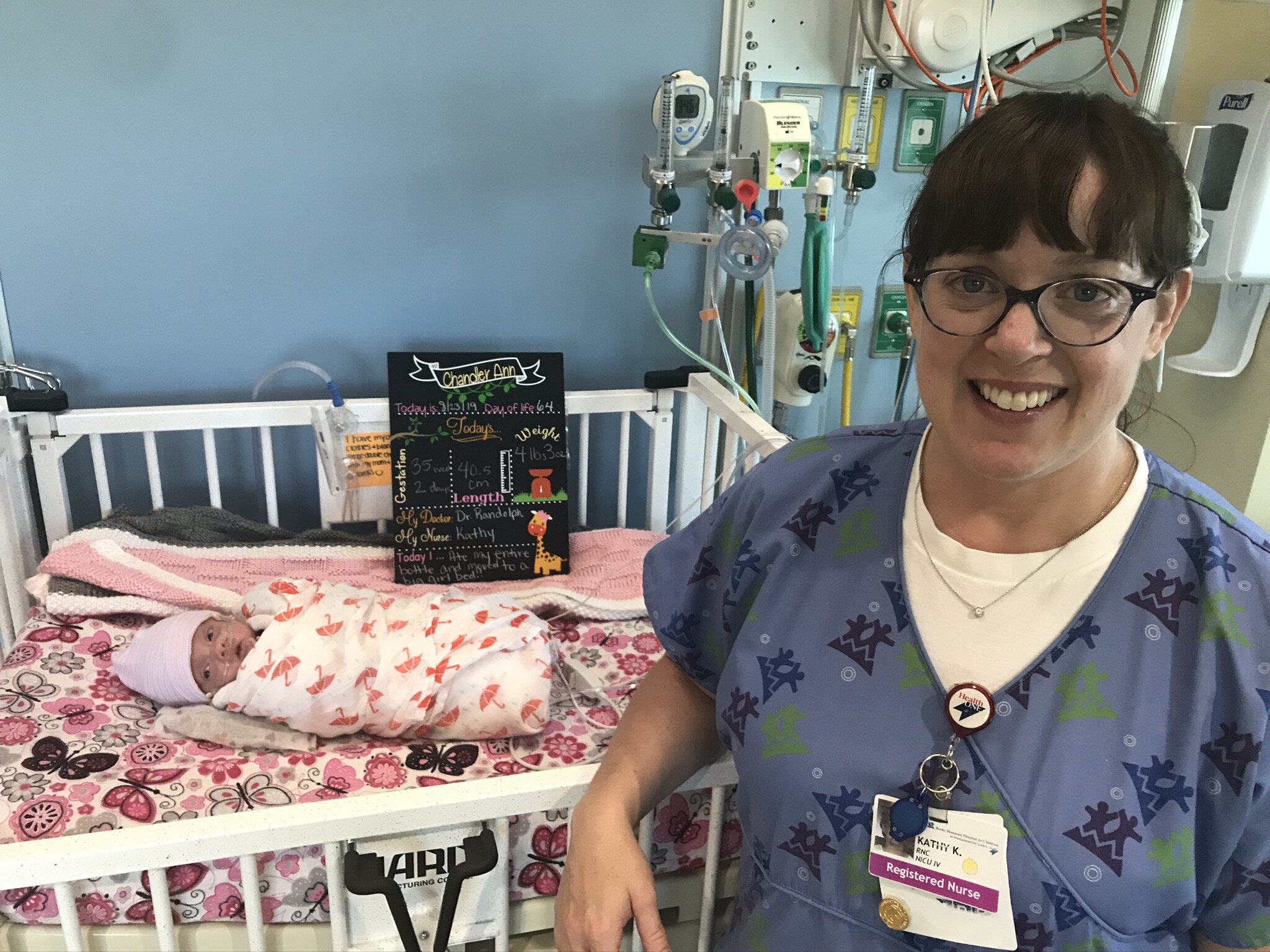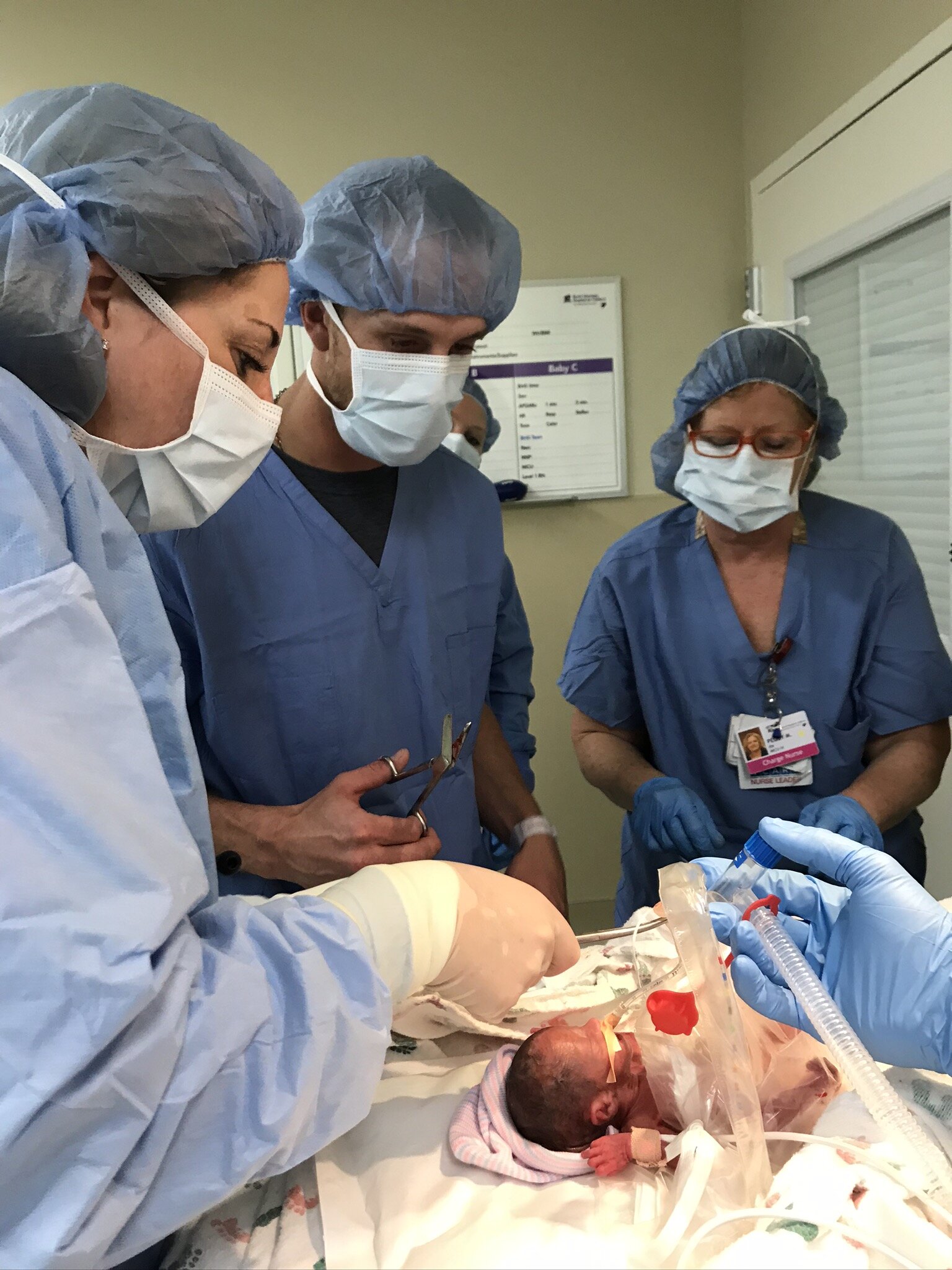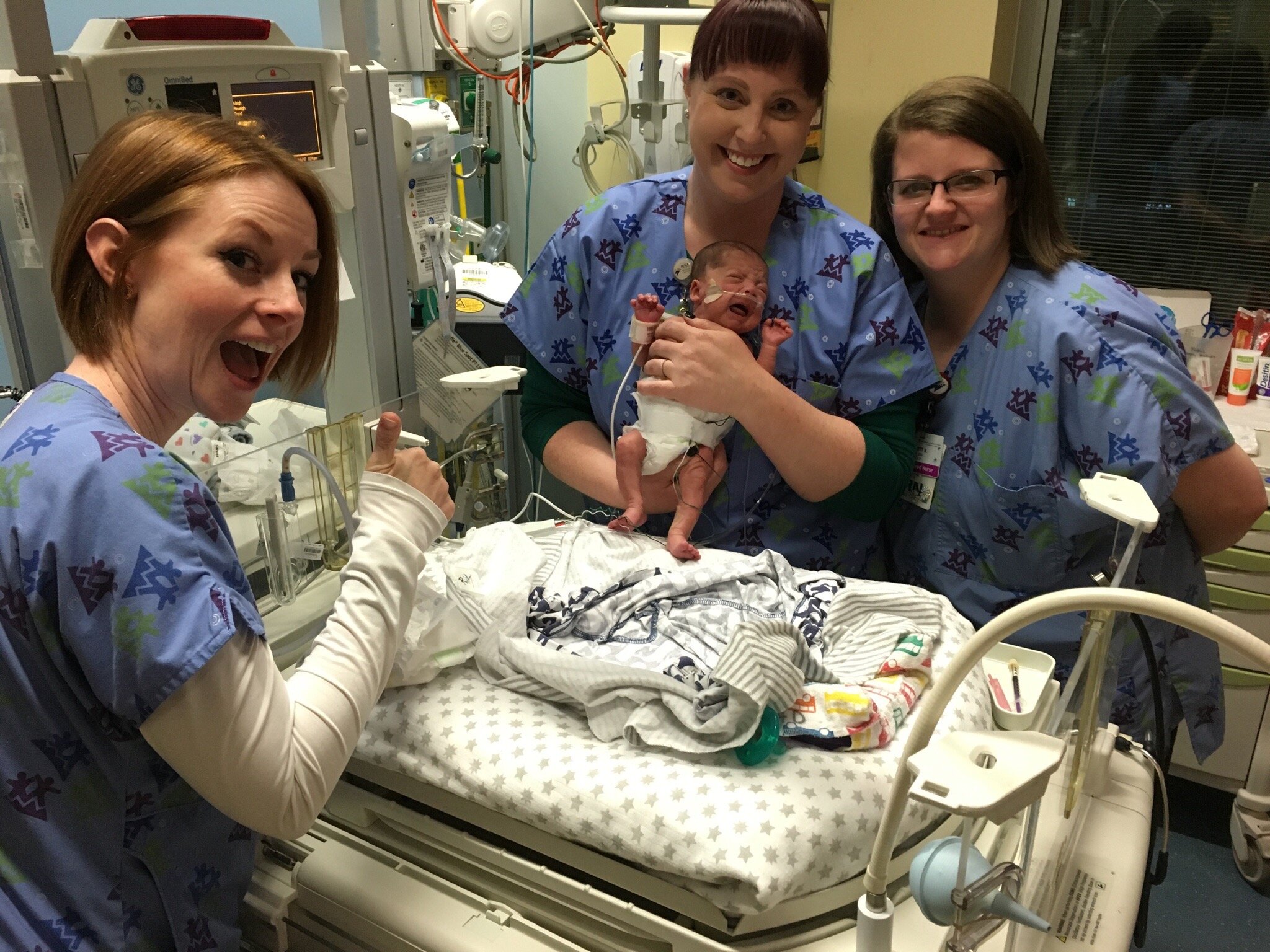Episode 37: Who's Who in the NICU?
The neonatal intensive care unit, the NICU, is a special unit in the hospital that provides care for seriously ill and premature infants. The care of babies is super-specialized, and it requires an entire team of professionals to work together to provide excellent care. For many parents, the NICU can feel overwhelming, loud, and confusing at first introduction. But understanding who is caring for your baby, and who is walking and in and out of the unit, can provide reassurance and relieve stress. Here is a brief overview of who’s who in the NICU.
Who’s Who in the NICU?
The people caring for your baby in the NICU are a team. Each person has an important job. They must all work together seamlessly to make sure you and your baby are getting the best care possible. Here are the NICU staff members you may meet during your hospital stay.
NICU Bedside Nurses
During your time in the NICU, you will most likely see your NICU nurses more than anyone. Your baby’s NICU nurse is right at the bedside monitoring your baby from minute to minute. They are the heart of the NICU, the eyes and ears that keep your baby safe. They carry out doctor’s orders, give medications, place IVs, make assessments during care times, and reports changes in status about your baby to the physician team.
Other Nurses
In addition to the bedside nurses, there are Clinical Nurse Specialists, nurses who are responsible for ongoing nursing education on the unit, help update policies and work on quality improvement projects. The Charge Nurse is the nurse assigned to supervise the unit, ensure staffing assignments are appropriate, and help out on the unit wherever and whenever it is needed. Finally, the Nurse Manager oversees the unit as a whole, is responsible for hiring nurses, and handles the financials of the unit.
Respiratory Therapists
A respiratory therapist specializes in treating the lungs and airways. Under the orders of the physician, they help with the placement of breathing tubes, adjusting ventilator settings, and take care of the breathing equipment and devices needed to help your baby breathe comfortably.
Nutritionist
Neonatal nutritionists are trained to help ensure your infant is receiving the nutrition they need for proper growth. They help physicians with optimizing IV nutrition, tracking growth, fortifying feedings and monitoring nutritional labs.
Lactation Specialists
Lactation specialists help mothers with both breastfeeding and milk supply. This involves initiation of pumping to provide milk for your baby, and ultimately breastfeeding when your baby can safely suck, swallow, and breathe.
Feeding specialists / Occupational Therapists
Occupational therapists help monitor and encourage basic developmental milestones. They work on suck / swallow, evaluate muscle tone, movement and reflexes, and can show parents infant massage and stretching. They are essential in monitoring developmental milestones and making early intervention referrals.
Social work and mental health specialists
The NICU can be stressful, and social workers and psychologists can help parents process stress, shock, frustration, grief, and fear. But they also help process hope and happiness. Depending on the unit, they may facilitate support groups, provide education to families, provide information about resources, and act as a sounding board for families. They may write letters for employers and insurance companies and make referrals for SSI.
Case Manager
The case manager in the NICU serves as both the liaison to your insurance company and the liaison to home health companies when it comes time to order equipment your baby may need for home.
Medical Professionals in Training
Some NICUs will be associated with teaching institutions, and you may see medical students, nursing students, NNP students and other medical students. If you are at an academic institution, you may come across Residents and Fellows. Residents are doctors who have graduated from medical school, but are continuing their education in pediatrics under the supervision of attending physicians. The first year of residency, is considered the intern year. After residency, if you are interested in neonatology, you begin a fellowship. All residents and fellows work under the supervision of an attending neonatologist.
Neonatal Nurse practitioners (NNPs) and Physician Assistants (PAs)
PAs have a masters degree and advanced training in neonatology. NNPs are nurses who obtained either a masters or doctorate in nursing and specialize in neonatology. Both NNPs and PAs work in conjunction with and under supervision of attending neonatologist. They can diagnose, treat, create care plans, and help with procedures in the NICU.
Consulting physicians
This includes pediatric surgeons, cardiologists, pulmonologist, nephrologists and others who specialize in specific organ systems and help care for infants in the NICU.
Neonatologist
Neonatologists are doctors who finished medical school, pediatric residency, and fellowship training in the NICU. They are experts in caring for sick and premature infants, and lead the team caring for your baby in the NICU.
Dr. Zimmermann examining an infant in the NICU.
other
I don’t want to leave out the other professionals that make the NICU function. Unit secretaries greet families and help run the unit. Housekeepers keeps the unit clean and sanitary, Xray and ultrasound technicians to help facilitate studies, pharmacists who ensure medications are delivered safe, and milk bank technicians who deliver and fortify breast milk to provide optimal health for your infant. Everyone in the NICU has their own role in making sure every baby receives the best care possible.
Listen to the podcast to hear about Who’s Who in the NICU below.

